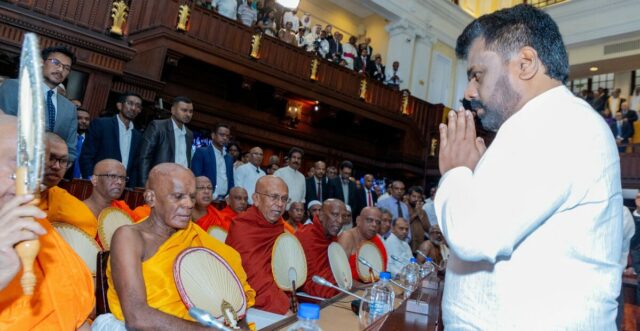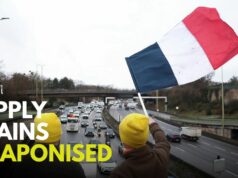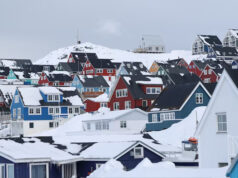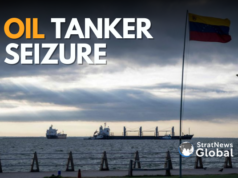The word from Colombo is that newly-minted President Anura Dissanayake is under pressure from his constituents to deliver on what are described as “low hanging fruit”.
Sources telling Stratnewsglobal that given his high voltage election campaign against corruption, it would be a relatively easy matter to raid or round up some prominent political offenders, stories of whose wealth and lifestyle are the subject of street gossip. It could include the Rajapaksas.
In Oct. 2021, the International Consortium of Investigative Journalists published an exhaustive report on the wealth of Sri Lanka’s former first family, focusing on one Thirukumar Nadesan and more important his wife Nirupama Rajapaksa, whose late father was cousin of two former presidents: Gotabaya and Mahinda Rajapaksa.
It put their overall wealth at over $160 million (the average income in Sri Lanka is $4000). The consortium could not independently verify the figure given the maze of offshore accounts, shell companies and high value artworks, the last locked away in a London warehouse.
But it’s the kind of money that Aruna Dissanayake would love to get his hands on, or at least go through the motions.
“He does not promise what he cannot deliver,” sources said, “but graft is a serious issue in the streets and the ‘Aragalya’ movement of two years ago, that toppled President Gotabaya Rajapaksa, was triggered not only by economic collapse but the arrogance of the rich and powerful.”
There are unverified reports that some of the rich and powerful are leaving the country or have already left.
Closely tied to this is the China connection. Anura Dissanayake does not like the loans taken from Beijing that have forced bankrupt Colombo to hand over strategic ports like Hambantota to China for 99 years.
Add to that the high cost of Chinese infra projects including highways, and one comes away with the sense that a lot of money has changed hands. If his crackdown on graft goes to the logical length, the Chinese could end up with a lot of dirt on their faces: would Dissanayake want that?
How would this go down in the inner circles of the JVP, to which he belongs. As a communist party, it has ties to the Chinese Communist Party, there are delegations coming and going from both sides and the ideological affiliations are obvious.
Unclear is the extent of influence the Chinese may have over their Lankan comrades. It again raises the question, is Dissanayake his own man or answerable to a shadowy JVP cabal in the background?
“What about reported assurances he has given to the Tamil minority about some autonomy under the 13th Amendment? Is the JVP with its history of ethnic Sinhala nationalism on board?”
That is not clear. One does hear though that since the 13th Amendment is seen as a law enacted under Indian pressure, the name should be changed to make it less anathema to the ethnic Sinhala majority.
Provincial council elections will be held and one hears that Dissanayake is ready to give land rights to the Tamils but not control over the police.
Also, the de-merger of the northern and eastern provinces effected by a Supreme Court ruling in 2006, cannot be undone (the Tamils in the eastern province want merger with the north to reduce the political weight of the Muslims).
Million-dollar question: can India do business with Dissanayake?
Sources said “India can but it needs to be done in a deft manner unlike what Delhi is known for in the neighbourhood. He has built bridges with India and he should not be seen negatively.”
Although he has opposed an Adani power project on the island, he is open to Indian FDI and sees strategic value in the relationship with Delhi. The buzz is his visit to Delhi in February this year, and meeting with NSA Ajit Doval more recently in Colombo, went off well.
For now, Anura Dissanayake’s priorities are clear. Rework some of the terms of the deal with the IMF to give relief to his constituents; deliver on his promise to clean up a graft-ridden polity. Foreign policy will come later.
Thirty eight years in journalism, widely travelled, history buff with a preference for Old Monk Rum. Current interest/focus spans China, Technology and Trade. Recent reads: Steven Colls Directorate S and Alexander Frater's Chasing the Monsoon. Netflix/Prime video junkie. Loves animal videos on Facebook. Reluctant tweeter.





